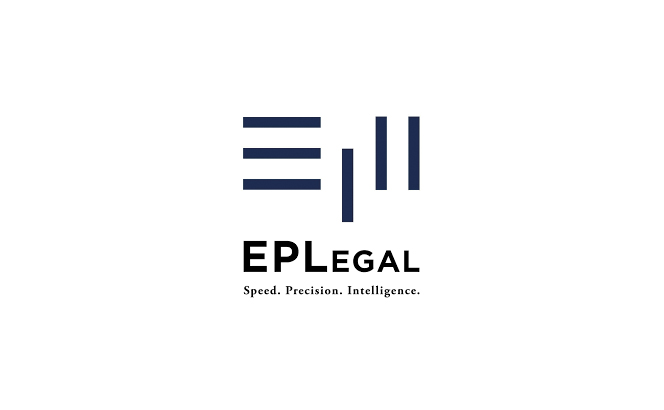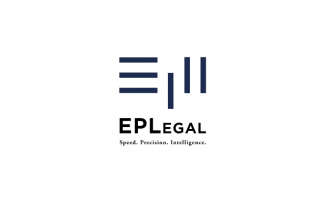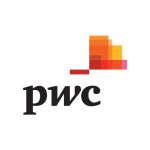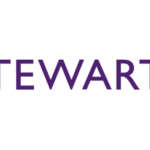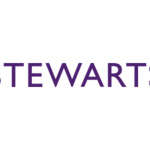1. What are the key regulatory developments in Vietnam’s banking and finance sector over the past year, and how have they impacted the legal landscape?
Key regulations and their impacts include:
Circular No. 06/2023 1: promotes digital transformation in the banking sector; enhances access to bank credit for clients; and allows borrowers to repay loans in a different currency.
Circular No. 08/2023 2: permits depositing unused foreign loans for deposit interest, which offers an option to offset loan costs.
State Bank of Vietnam (SBV)’s measures for post-Covid-19 recovery: provides liquidity and headroom for credit institutions; manages interest rates effectively3; restructures repayment terms and maintains loan categories4; implements specialised credit programmes from the government and various banks; streamlines administrative procedures5; and enhances connectivity between banks and enterprises through a 2% interest rate support policy from the state budget6.
2. Can you provide an overview of the licensing and compliance requirements for foreign banks and financial institutions operating in Vietnam?
The establishment of wholly foreign-owned and joint ventures must satisfy:
- Requirements similar to a local financial institution (legal capital, shareholder’s financial capacity, charter, management board, establishment plan and a feasible business plan).
- Foreign financial institution’s compliance with the laws of its country.
- Foreign financial institution’s financial health compliance with the SBV’s regulations.
- Foreign financial institution’s commitments of the established institution’s operation in Vietnam.
- Agreements between foreign competent authorities and the SBV on the inspection and oversight of foreign financial institutions’ operations7.
For establishment of representative offices: A foreign financial institution must be permitted by the laws of its country do so8. The establishment of branches is similar to a financial institution but excludes the need for a charter9.
Regarding compliance requirements, foreign banks and financial institutions operating in Vietnam must comply with money laundering prevention10, electronic transactions11, risk management12, financial reporting, auditing13, and safeguarding consumer rights14.
3. What are the typical legal challenges faced by multinational banks and financial companies when establishing and maintaining a presence in Vietnam?
When establishing and maintaining a presence in Vietnam, multinational banks and financial companies face legal challenges, including (i) regulatory compliance: multinational financial institutions must comply with local laws related to banking, finance, and foreign investment; (ii) ownership restrictions: Vietnam imposes foreign ownership limits on certain financial institutions15; (iii) minimum capital requirements: foreign banks and financial companies must have sufficient legal capital to their Vietnamese entity16; and (iv) corporate governance: managers, executives and control board members must meet Vietnamese laws17; and other challenges such as currency controls, data protection and privacy, and taxation.
4. How has Vietnam’s legal framework evolved to accommodate the growth of fintech and digital banking, and what are the implications for foreign investors in this sector?
Vietnam’s fintech activities are governed by: Law on Information Technology 2006; Law on High Technology 2008; Law on Cyber Information Security 2015; Law on Cybersecurity 2018; Decision 2545/QD-TTg dated 30 December 2016 on the scheme of non-cash payments; Decision 1255/QD-TTg dated 21 August 2017 on management of virtual assets, digital currencies and virtual currencies; Decree 19/2023/ND-CP on anti-money laundering; and Decree 13/2023/ND-CP on Personal Data Protection.
Foreign investors may face various and complicated laws, decrees and circulars, especially in acquiring the licence to establish a fintech business. Nonetheless, foreign investors can still benefit from the growing Vietnamese market, possessing the pace of technology development.
5. What are the current trends and best practices in dispute resolution within the banking and finance sector in Vietnam?
Litigation in Vietnam can be complicated, time consuming and lacks confidentiality. Meanwhile, arbitration is a current growing trend. In 2018, VIAC18 handled 180 cases, 4% of which were related to banking and finance19. In 2020, VIAC received 221 cases with 2% of them related to disputes in the finance sector20. In 2022, the number increased to 292 new cases, 10.4% of which were finance and banking disputes21. Additionally, mediation is also a growing ADR22 in Vietnam. In 2022, VMC23 received 12 new cases with a result of 100% successful settlements reached24. While banking and finance cases are fewer than in other sectors, mediation remains a viable ADR option.
6. Can you explain the regulatory framework and legal considerations surrounding mergers and acquisitions (M&A) in the Vietnamese banking and finance industry?
An M&A deal in the banking and finance sector is regulated by several laws. The Credit Institutions Law 2010 specifically governs the establishment, organisation, and operation of credit institutions in Vietnam25. The Investment Law 2020 and the Enterprise Law 2020 govern the requirements and formalities for the M&A of all enterprises incorporated in Vietnam. Moreover, public companies in Vietnam shall be regulated by the Securities Law 2019 while all companies must comply with the Competition Law 2018 to avoid the economic concentration during the M&A process26.
7. What are the key anti-money laundering (AML) and counter-terrorism financing (CTF) regulations in Vietnam, and how are they enforced by authorities?
The Law on Money Laundering 2022 is the main legal ground on money laundering and financing of terrorism, read together with Decree No. 19/202327 and Circular 09/202328.
Money laundering is a crime under Criminal Code 201529, while CTF is regulated under the Anti-Terrorism Law 201330.
AML and CTF are enforced as follows:
- SBV develops plans and legislative documents;
- SBV, financial institutions and other entities are required by the law to perform preventative measures;
- SBV, Ministry of Public Security and other ministries conduct inspections, investigations with international co-operation; and
- prosecution and trial by the People’s Procuracies and the People’s Courts.
8. How has the Vietnamese government addressed environmental, social, and governance (ESG) issues within the banking and finance sector, and what legal requirements are in place for sustainable finance initiatives?
On environment: (a) the Environmental Protection Law 2022 grants green credit31 and regulates the issuance of green bonds32 to projects that are beneficial to the environment; (b) the offering of green bonds must comply with Decree No. 153/202033; and (c) Circular No. 17/2022 on environmental risk management for credit institutions and foreign bank branches34.
On social: (a) the Labour Code 2019 combats discrimination, inequality, poor working condition and sexual harassment; and (b) Decree No. 13/2023 on customer data protection35.
On governance: (a) Anti-corruption Law 2018; (b) Circular No. 96/2020/TT-BTC on disclosure of information on the securities market; (c) Enterprises Law 2020 on the structure of board of directors of companies; and (d) CVGCBP36 (by the State Securities Commission) and the Vietnam Sustainability Index which recognise ESG practices.
9. What are the recent developments in cryptocurrency and blockchain regulation in Vietnam, and how are they affecting financial institutions and investors?
Vietnamese laws do not regulate cryptocurrencies and the SBV prohibits their use for payments. Consequently, financial institutions in Vietnam cannot engage in cryptocurrency transactions, and investors using cryptocurrencies may lack legal protection, risking administrative fines or criminal penalties.
The recent legal developments on this topic are:
- Decision 1255/QĐ-TTg: the Vietnamese Prime Minister approved a plan for relevant authorities to review, assess, and amend existing laws, proposing new legislative documents regarding virtual assets and currencies; and
- On 15 June 2021, the Prime Minister assigned the SBV to research, develop, and pilot the use of virtual currency based on blockchain technology, reflecting Vietnam’s trend toward internationally integrated and regulated use of virtual currencies.
10. Can you provide insights into the future prospects and potential legal challenges for the banking and finance legal market in Vietnam, considering both domestic and international factors?
The banking and finance legal market in Vietnam is developing, despite encountering several challenges, particularly:
- The issues related to data privacy and cyber security. Legal experts will be essential in ensuring compliance with data protection laws and balancing data utilisation with safeguarding clients’ information.
- To promote access to credit capital for businesses, the SBV has implemented various measures to substantially increase cross-border facility transactions. This circumstance creates a heightened demand for legal services within the sector.
- Banking and finance transactions often involve complex contracts and agreements often resulting in disputes due to contract breaches.
Footnotes:
- Circular No. 06/2023/TT-NHNN dated 28/06/2023
- Circular No. 08/2023/TT-NHNN dated 30/06/2023
- Circular 22/2019/TT-NHH dated 15/11/2019
- Circular 02/2023/TT-NHNN dated 23/04/2023
- Circular 06/2023/TT-NHNN dated 28/06/2023
- Decree 31/2022/ND-CP dated 20/05/2022
- Law on Credit Institutions 2010 (LCI 2010), Article 20.2.LCI 2010, Article 20.4
- LCI 2010, Article 20.4.
- LCI 2010, Article 20.3.
- Law on Anti-Money Laundering No. 14/2022/QH15 dated 15 November 2022
- Decree No. 165/2018/ND-CP dated 24 December 2018
- Circular No.13/2018/TT-NHNN dated 18 May 2018
- Circular No.24/2021/TT-NHNN dated 31 December 2021
- Decree No. 117/2018/ND-CP dated 11 September 2018
- Decree No.01/2014/ND-CP dated 03 January 2019, Article 7
- Decree No.86/2019/ND-CP dated 14 November 2019, Article 2
- LCI 2010, Article 50
- VIAC: Vietnam International Arbitration Center
- Vietnam International Arbitration Centre, ‘2018 Statistics’ (2018) www.viac.vn/images/annual%20reports/Annual-report-2018.pdf
- Vietnam International Arbitration Centre, ‘2020 Statistics’ (2020) www.viac.vn/en/statistics/2020-statistics-s37.html
- Vietnam International Arbitration Centre, ‘2022 Statistics’ (2022) www.viac.vn/en/statistics/2022-stattistic-s41.html
- ADR: alternative dispute resolution
- VMC: Vietnam Mediation Center
- Vietnam Mediation Center, ‘Annual Report 2022’ (2022) vmc.org.vn/images/Resources/Annual-Report/2022/VIAC_Bao-cao-thuong nien-2022_230810.pdf
- Law on Credit Institutions 2010, Article 153: Credit institutions may be reorganized by split-up, division, consolidation, merger or transformation must obtain SBV’s approval and obtain licensing requirements.
- Law on Competition 2018, Article 30
- Decree No. 19/2023/ND-CP dated 28/4/2023
- Circular 09/2023/TT-NHNN dated 28/7/2023
- Criminal Code 2015, Article 324
- Anti-Terrorism Law 2013, Chapter V
- Law on Environmental Protection 2022, Article 149
- Law on Environmental Protection 2022, Article 150
- Decree No. 153/2020/ND-CP dated 31/12/2020
- Circular No. 17/2022/TT-NHNN dated 23/12/2022
- Decree No. 13/2023/ND-CP dated 17/04/2023
- CVGCBP: Vietnam Corporate Governance Code of Best Practices
For more information contact:

Ngo Quynh Anh (Annie Ngo)
Managing partner
E: anniengo@eplegal.com

Nguyen Van Son (John Nguyen)
Associate
E: sonnguyen@eplegal.com

Pham Thai Dan Manh (Dan)
Associate
E: manhpham@eplegal.com







